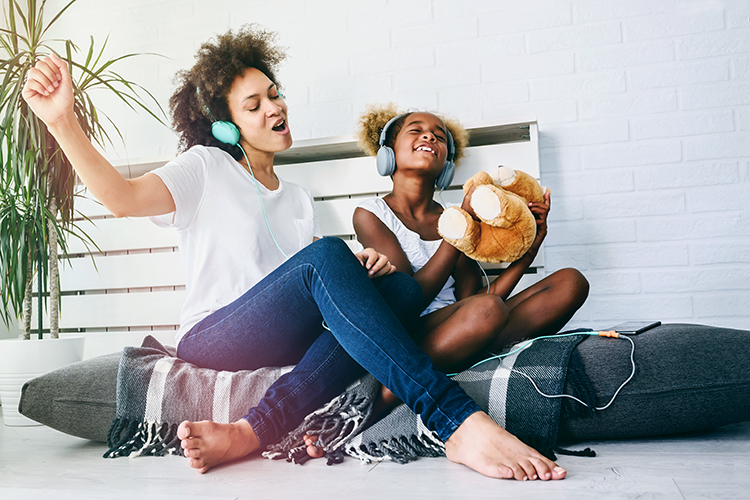
Is listening to music beneficial or dangerous?
Music has a direct impact on our body. It makes us happy; it gives us energy. Several studies have looked at the effects of music on the human brain, yet others have reported its negative effects on hearing, such as hearing loss, tinnitus and sound intolerance.
How can we distinguish the good from the bad?
During sports or physical activities
Listening to music influences our perception of effort. It has been shown that people listening to rhythmic music while running will run longer than those who are not listening to music. It also makes us forget we’re tired, thus delaying the moment we feel like slowing down.
Music also has a motivational effect in psychological preparation to perform a sport or significant physical effort. Thus, the positive effects occur both before and during the practice of sports!
Improves sleep and relaxation
The soothing effects of gentle music—instrumental or vocal—have been observed in people of all ages. Haven’t we all seen the effects of singing a lullaby to get a child to sleep? Music therapy can make falling asleep easier, decrease nighttime waking, improve sleep quality and increase its duration and effectiveness.
Well-being and creativity
Musical pieces have a strong expressive structure powerful enough to generate emotional states. Music can also reduce anxiety and stress and improve mood.
Background music would also help with creativity. It would stimulate different cognitive processes such as attention and memory and facilitate the search for problem solving by providing a creative environment that is ripe for self-expression.
Pay attention to your ears
Listening to music for long periods of time at a high volume can cause several hearing problems. Indeed, hearing loss or tinnitus may arise as a result of unhealthy listening habits. It can also lead to an intolerance to ambient noise.
Regardless of whether you use earphones or speakers, it is recommended to follow the 60-60 rule, which is to listen to music for 60 minutes at 60% of the device’s volume. If you can’t control the volume, like during a concert, wearing hearing protection, such as earplugs, is recommended.
BY Marilène Roy, Audiologist, Polyclinique de l’Oreille





